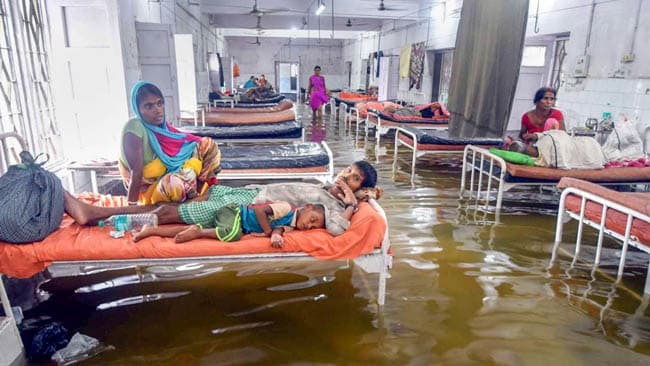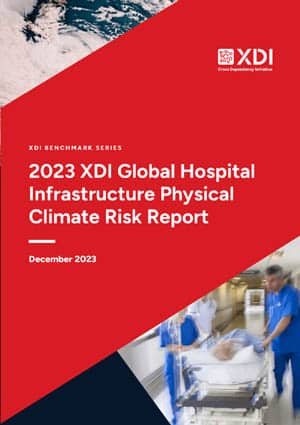
Flooding at Nalanda Medical College and Hospital (NMCH), after heavy rains in Bihar, India, 2018
On December 2, XDI Cross Dependency Initiative, an consultancy that specializes in understanding and managing unavoidable climate change, released report that evaluates physical climate risks facing over 200,000 hospitals around the world.
Key Findings include:
⊕ Without a phase out of fossil fuels, by 2100, 1 in 12 hospitals worldwide will be at high risk of total or partial shutdown from extreme weather events — a total of 16,245 hospitals.
⊕ Without a phase out of fossil fuels, all of these 16,245 hospitals will require adaptation, where suitable. Even with this enormous investment, for many, relocation will be the only option.
⊕ The analysis suggests that the risk of damage to hospitals from extreme weather events has already increased by 41% since 1990 due to greenhouse gas emissions.
⊕ Limiting global warming to 1.8 degrees Celsius with a rapid phase out of fossil fuels would halve the damage risk to hospital infrastructure compared to a high emissions scenario.
⊕ If emissions are high, the risk of damage to hospitals around the world from extreme weather will increase more than four-fold (311%) by the end of the century. In a low emissions scenario, this increase in risk is reduced to just 106%
⊕ Even with a rapid decrease in fossil fuels, the risk of damage to hospital infrastructure will still increase by 2100 due to emissions that have already occurred or appear unavoidable. However, a lower emissions scenario will significantly lessen this risk.
⊕ Hospitals located on coastlines and near rivers are most at risk. Today, riverine and surface water flooding dominates the risk of damage to hospitals. Towards the end of the century, coastal inundation rapidly increases (exacerbated by sea-level rise) and becomes the most significant hazard after riverine flooding by 2100.
⊕ Of the 16,245 hospitals identified as high risk by 2100, 71% (11,512) of them are in low and middle income countries.



